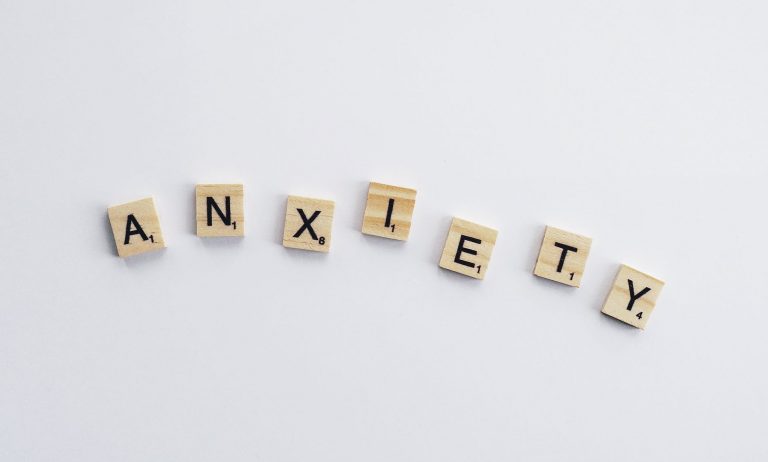How To Manage Your Stress
What is stress?
Stress is a natural feeling of not being able to handle specific demands and events.
These demands can come from work, relationships, financial pressures and other situations.

When humans face a challenge or threat, they have a partly physical response. The body activates resources that help people either stay and meet the challenge or get to safety as fast as possible.
Then, the body produces larger quantities of the chemicals cortisol, epinephrine, and norepinephrine. These trigger the following physical reactions…
- increased blood pressure
- heightened muscle preparedness
- sweating
- alertness
Kinds Of Stress…..
The National Institute Of Mental Health( NIMH) recognises two types of stress: acute and chronic.
Acute Stress Disorder
This type of stress is short term and usually the more common form of stress. Acute stress often develops when people consider the pressures of events that have recently occurred or face upcoming challenges in the near future.
For example, a person may feel stressed about a recent argument or an upcoming deadline. However, the stress will reduce or disappear once a person resolves the argument or meets the deadline.
Chronic Stress Disorder
This type of stress develops over a long period and is more harmful
Ongoing poverty, a dysfunctional family, or an unhappy marriage are examples of situations that can cause chronic stress disorder. It occurs when a person can see no way to avoid their stressors and stops seeking solutions.
People with chronic stress are at risk of having a final breakdown that can lead to suicide, violent crimes, a heart attack, or stroke.
Chronic Stresses make it difficult for the body to return to a normal level of the stress hormone activity, which can contribute to problems in the following systems…
- Immune System
- respiratory system
- reproductive system
- sleep
- cardiovascular disease
Causes of Stress Disorders
People react differently to stressful situations. What is stressful for one person may not be stressful for another, and almost any event can potentially cause stress. For some people, just thinking about a trigger or several smaller triggers can cause stress.
Common major life events that can cause stress include…..
- lack of time or money
- family problems
- job issues or unemployment
- illness
- bad relationships, unhappy marriage, and divorce
- uncertainty or waiting for an important outcome
- excessive noise, overcrowding and pollution
- fear of crime or problems with neighbours
- abortion or pregnancy loss
Symptoms And Complications
We can categorise into 3 types of symptoms of stress: Physical, Emotional, Behavioral.
- The physical effects of stress can include:
- sweating
- pain in the back or chest
- cramps or muscle attacks
- unconsciousness
- headaches
- nervous twitches
- Emotional reactions can include:
- anger
- burnout
- concentration issues
- fatigue
- a feeling of insecurity
- nail biting
- restlessness
- sadness
- Stress associated behaviours include:
- drug and alcohol abuse
- relationship problems
- frequent crying
- social isolation
- sudden angry outbursts
- food cravings and eating too much or too little
Chronic Stress Disorder can lead to…
- depression
- anxiety
- heart disease
- high blood pressure
- lower immunity against diseases
- muscular aches
- sleeping difficulties
- stomach upset
How To Overcome Stress Disorders
Here I am going to show you 5 tips on how you can overcome the stress that is really effective for you. I have been following those tips for years and always remain in the chill mood even in a difficult time.
- Don’t Go For Perfection, Instead Go For Value Progress
Do you want to live your life without working on anything?
Perfection means that every change you make will make the result worse. Every step you would make from perfection makes the results less perfect.
The problem is that when you are focusing on being perfect that usually slows down your progress. You are chasing something that doesn’t exist.
YOU CAN BE OKAY WITH NOT GETTING IT PERFECT. BUSINESS AND LIFE ARE NOT ABOUT BEING PERFECT, THEY’RE ABOUT LEARNING AND GROWING. IF YOU ARE PERFECT, YOU CAN’T GROW ANYMORE. PERFECTION TAKES AWAY YOUR PURPOSE IN LIFE.
- Script your day
How do you deal with stress and perform under pressure without being organized?
Imagine being a performer and performing in front of a large audience at a theatre. Would you just do out there and whatever you want or do whatever you feel like? Obviously not. You will rehearse everything that you do because the entire performance follows a script. So, why not do this with your day?
So, scripting your day means that you are like a performer. You’re running your business and pursue your career, and just like a performer, in the end, you want success. So block out what you want to do throughout the day.
ALWAYS ASK YOURSELF A QUESTION, WHAT IS MY RETURN ON TIME INVESTMENT, MY ROTI?
This will help you stay on track and stay focused. And if you are focused, you do important things first and don’t let distractions take over.
- Write Down What Stresses You
Write down everything that you feel pressured by so you can see it in front of you.
If you only have those things in your head, you might feel stressed. But once you see them written out, you might realize that you only have a few things to complete before a deadline. If you do this, you will realize that the closer you are to your deadlines, the more you think you have to do. But after writing it out and grouping things, you might see what comes first. Suddenly, from a hundred things to do, there are the only two or three left.
Can you see how this is less overwhelming? You might even realize that you can do certain things much later or don’t have to do them at all. What you need to do all depends on how critical those things are to project.
SO, DON’T KEEP THINGS THAT STRESS YOU IN YOUR HEAD. WRITE THEM OUT AND FIGURE OUT WHAT YOU NEED TO DO RIGHT NOW.
- Stay In The “Genius Zone”
Most of the people don’t focus on their brilliance. They work on their weaknesses only. If you focus on improving your weaknesses, you will have mediocre strengths but no outstanding ones.
We are all better-skilled at certain things that in others. You might be great at your job, but not much at doing your accounting.
EVERY MINUTE YOU WASTE ON SOMETHING YOU ARE NOT GOOD AT IS A MINUTE YOU ARE NOT SPENDING IN YOUR GENIUS ZONE.
- Build A Powerful Skillset
How do you deal with stress and perform under pressure while struggling with your income? In most case, you don’t. You see, stress and pressure exist, because the challenge is bigger than your skill.

Imagine I am giving you a chance to deliver a speech at a stage performance. Around 100 people are your audience. If you don’t have experience and public speaking skills obviously you will feel stressed. But if you are experienced and have this skill you will do it easily.
Every challenge is only as hard as your lack of skill. To someone who can’t drive, even the first gear seems overwhelming. But to an experienced race car driver even high speeds are no issue.
So, build a powerful skillset to get rid of stress.
Summary: Stress is a natural feeling of not being able to handle specific demands and events.
These demands can come from work, relationships, financial pressures and other situations.
The National Institute Of Mental Health( NIMH) recognises two types of stress: acute and chronic.
Acute Stress Disorder
This type of stress is short term and usually the more common form of stress. Acute stress often develops when people consider the pressures of events that have recently occurred or face upcoming challenges in the near future.
Chronic Stress Disorder
This type of stress develops over a long period and is more harmful
Ongoing poverty, a dysfunctional family, or an unhappy marriage are examples of situations that can cause chronic stress disorder. It occurs when a person can see no way to avoid their stressors and stops seeking solutions.
To overcome stress you may follow these 5 steps
- Don’t focus on perfection, Focus on progress
- Script your day
- Write down what stresses you
- Stay in “Genius Zone”
- Build a powerful skillset
